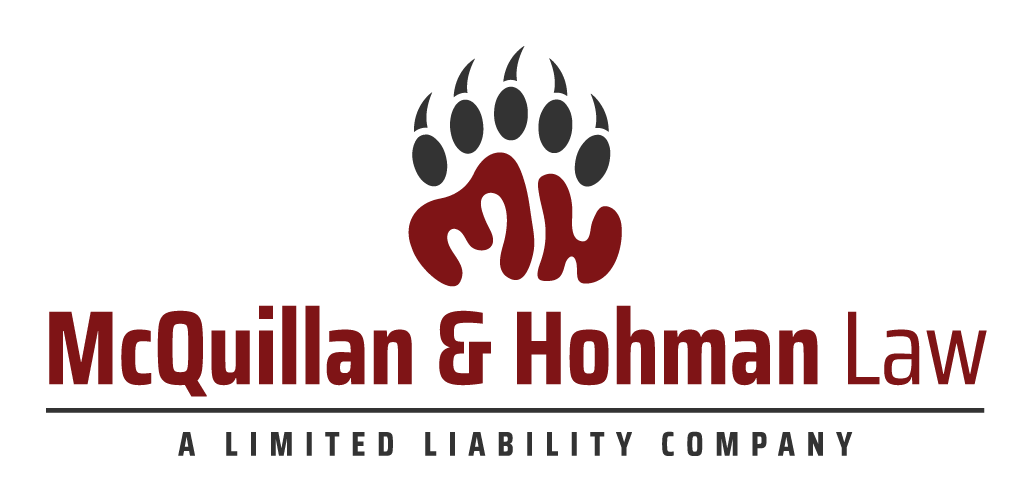Here’s an overview of the business formation types you’ll choose from when forming your new business in Alaska or Montana.
Your choice will determine your company’s structure for legal, tax, accounting, and other purposes.
SOLE PROPRIETORSHIP
If you run your business solo, you may decide to structure it as a sole proprietorship.
A sole proprietorship is a business operated and funded by one person. Income from the business is reported on its owner’s personal tax return.
Unlike other business structures, a sole proprietorship is not seen as legally separate from its owner. The business and the owner are considered to be the same entity.
Because the business and its owner are one and the same, the owner can potentially be at risk if the business suffers in some way.
It’s relatively simple to set up a sole proprietorship, and requires no paperwork, but it’s important to do your research to understand the pros and cons and make sure this formation is best for you.
PARTNERSHIP
If you own and operate your business with one or more other people, your business will be designated as a partnership.
In a partnership, you share decision-making with the other owners. You also share all business profits and losses based on the percent each partner owns of the business.
Partnerships are normally simple to form with minimal paperwork. They have different liability and tax obligations from sole proprietorships.
Types of Partnerships:
General Partnership
General partners are two or more people who equally share all aspects of the business they own together, including:
- profits and losses
- liability
- legal and financial responsibilities
Limited Partnership
A limited partnership is when a business is made up of both general and limited partners.
A general partner focuses on the day-to-day management of the business and is held liable for it.
A limited partner isn’t responsible for management of the business and is not liable for it. Instead, the limited partner contributes by investing financially in the business.
Limited partners risk only the capital they’ve already invested.
Limited Liability Partnership (LLP)
In an LLP, all partners operate as general partners, but with much less liability.
Each partner is only liable for their own actions and not for the business mistakes of other partners. So, each partner has limited liability.
Each partner decides how much they want to invest in the business and how involved they want to be in its management.
Licensed professionals, like dentists or accountants, often go in together to form an LLP.
Which kind of partnership is best for me?
Each partnership type has different financial obligations, advantages, and disadvantages. It’s important to make sure you understand these completely in order to make your best choice.
If you’d like professional help in weighing the potential business consequences of choosing a particular partnership type, McQuillan & Hohman Law is here to assist you.
Schedule my initial consultation
CORPORATION
A corporation is a legal entity that’s treated as separate from its owners. Because of this, the owners’ liability is reduced.
Like an LLP, shareholders of a corporation are not held personally liable or responsible for the corporation beyond what they have directly invested.
Corporations provide benefits to owners beyond reduced liability, but have downsides too, including being more time-consuming to maintain than simpler structures.
A corporation can elect to be a “C” corporation or an “S” corporation under federal tax code.
C Corp
A C corporation is viewed by the IRS as a taxable entity separate from its owners. Because of this, a corporation is taxed at the corporate level, (subchapter C of the Internal Revenue Code) while profits of individual owners (shareholders) are additionally taxed at the personal income tax level.
C corporations essentially operate by “double taxation,” taxing both the corporation and its individual shareholders.
S Corp
The main difference between a C corporation and S corporation (subchapter S of the Internal Revenue Code) is that an S-Corp is not penalized by double taxation.
Instead, S-Corps operate on a “pass-through” tax method. Corporate profits, losses, deductions, and credits pass through to individual shareholders.
Shareholders pay taxes on these profits, along with any other income they may have, when they file their personal income tax returns.
Is a “C” Corp or an “S” Corp the best designation for my business?
If you want to form your business as a corporation, it’s essential that you understand the different tax implications of S Corp and C Corp designations.
If you want to make sure you understand, and have accounted for, all considerations involved in choosing between C Corp and S Corp structures, McQuillan & Hohman Law can provide expert advice.
Schedule my initial consultation
LIMITED LIABILITY COMPANIES (LLC)
A limited liability company, or “LLC,” is a combination of a corporation and a partnership.
An LLC has the legal benefits of a corporation but can be owned by one or more people (or businesses) who function very much like partners.
Owners (called “members” of an LLC) enjoy limited liability protection. As with a corporation, an LLC is considered to be an entity separate from its owner(s), so the personal assets of member(s) are not at risk like they might be in a sole proprietorship or certain types of partnerships.
LLCs can be taxed like sole proprietorships, partnerships, or they can elect either S Corp or C Corp designation.
How do I choose which type of business is right for me?
Choosing the right business formation can feel like a lot. You know that these are important decisions that will have long-term consequences for your business.
It takes time and research to be sure you understand and have carefully considered the different options, liabilities, protections, and operating tax structures.
